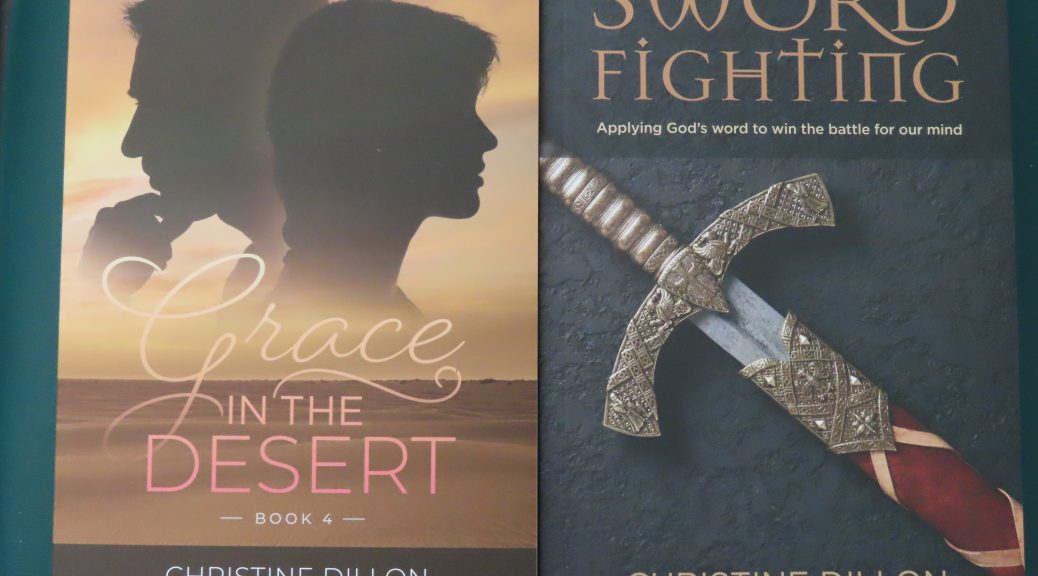
Writing linked fiction and non-fiction books
Christian fiction vs non-fiction
My first two books were non-fiction. The second book was about Bible storytelling which I’ve been using since 2004. The more I have seen how people respond to the stories, the more I’ve become convinced of the power of story. It is no real surprise then, that I would eventually write fiction rather than simply non-fiction. Novels allow me to make an impact on many people who will never pick up my non-fiction books.
I don’t write fiction just for fun but because it allows me to write stories that I hope will inspire and challenge my readers. Fiction allows me to explore themes and to model how to follow Jesus and make wise decisions. Sometimes the characters also demonstrate the consequences of unwise decisions. However, one limit of fiction is that you cannot (if you want your readers to keep reading) digress to expand on an issue and what the Bible has to say about it. Making my characters have long, long chats about forgiveness or hear a sermon on the subject isn’t very interesting to read.
My first two novels, Grace in Strange Disguise and Grace in the Shadows, mention Bible storytelling. If readers haven’t heard of this method of evangelism and discipleship, they can then delve into the topic in two of my non-fiction books, Telling the gospel through story: Evangelism that keeps hearers wanting more (IVP, 2012) or Stories aren’t just for kids: Busting 10 myths about Bible storytelling (2017). There is also a website dedicated to the subject – www.storyingthescriptues.com
Having a website means that video can be a large part of the content and that is yet another method of communication.

A non-fiction companion to my fourth novel
My fourth novel, Grace in the Desert, has two main characters who listen more to the lies in their head than God’s truth. This is something that all people struggle with. We believe the thoughts telling us, “You’re a failure,” or “You’re useless,” or, “You can’t be forgiven,” etcetera. Both main characters in the novel are directed towards the Biblical teaching to “take every thought captive” and the concept of using our “sword of the Spirit, which is the word of God” (Ephesians 6:17).

The problem was that in a fictional format, I could only scratch the surface of the subject. In 2008, I had written a short book on the subject of spiritual “Sword Fighting.” For various reasons, the book had never been published. Instead, I’d only loaned the draft to individuals as part of my discipling ministry.
The fourth novel, made me rethink whether I should finally publish the non-fiction book as a companion to the novel. Just as I was considering the idea, two different people wrote and asked if I was ever going to publish the sword fighting book. I took that as the Spirit’s guidance.
So Sword Fighting: Applying God’s word to win the battle for our mind was published one month after the novel. It allows people who are new to the concept of spiritual sword fighting, or who’d like to learn more, a chance to delve more deeply into the subject.

Ways for authors to delve deeper
Christian authors who write more “issue-based fiction,” will often include a discussion guide with their books. These might be in the back of the novel or on the author’s website. These are of huge help if you are using the book for a book club. Some of these discussion guides are a mini version of the idea of exploring a topic in more depth.
But some authors go all the way and write a non-fiction book.
These are two examples that I’ve come across with other writer’s of womens fiction:-
- Rosemary Hines has eight novels in her Sandy Cove series. She has also tackled one of the themes in greater depth in a Bible study. Silencing the Critic: Letting Go of ‘Not Good Enough’: A Sandy Cove Series Companion Bible Study.
- Sharyn Kopf did things the other way round. She wrote a trilogy of novels (Spinstered; Inconceived; Altared) to match a non-fiction book on singleness entitled, Spinstered: Surviving singleness after forty
Do you know other authors who have written a non-fiction book as a companion for a novel? What is the name of the novel and the non-fiction companion book?
** This article first appeared on the International Christian Fiction Writers blog on 27 August 2020.